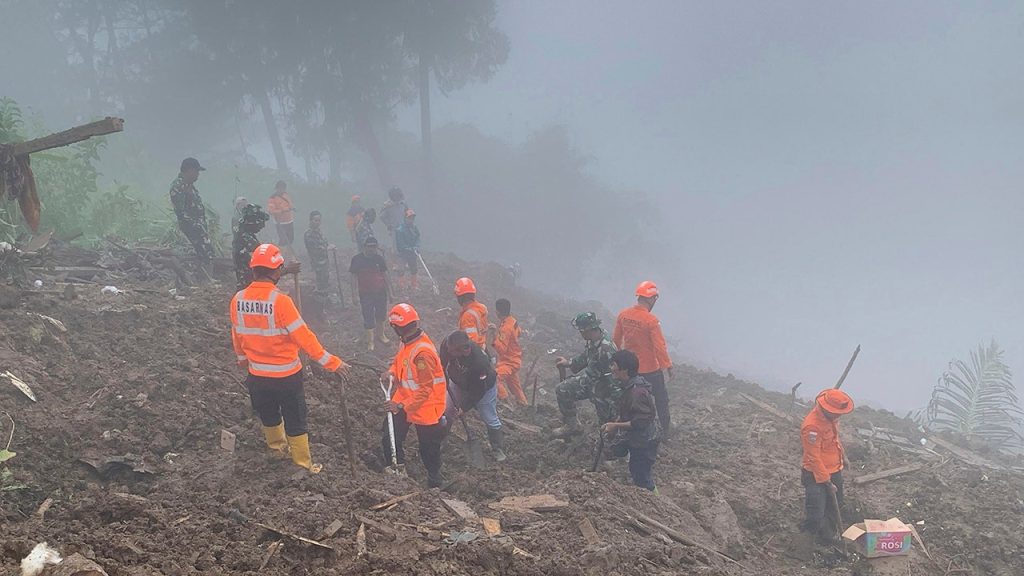Emergency crews in Indonesia have recovered the bodies of a 3-year-old girl and her mother who were victims of a deadly landslide in the Tana Toraja district of South Sulawesi province. Rescue efforts were ongoing when the bodies were found and recovered, wrapped in orange body bags, and carried away across a dark and rainy field with the help of torches. These two were the final missing persons after landslides on Sulawesi Island killed a total of 20 people. Rescuers faced challenges due to the steep, muddy terrain, making it difficult to use heavy equipment, forcing them to dig through thick mud with handheld tools to retrieve the bodies.
Local police reported that the landslides were triggered by torrential rain that caused the surrounding hills to sink and fall onto four houses on Saturday. Tragically, at least one family was inside one of the houses when the landslide hit. Dozens of soldiers, police, and volunteers joined the search efforts in the remote hillside villages of Makale and South Makale. On Sunday, two survivors, including an 8-year-old girl, were pulled from the fields and rushed to a hospital. The Tana Toraja district is home to several popular tourist attractions, including traditional houses and statues in caves known as tau-tau. Indonesia is a country with a large number of islands, where seasonal downpours often lead to landslides and floods.
The recovery efforts in Indonesia come amid a series of natural disasters in the region, including a devastating landslide in a Philippine mountain village. In the Philippines, over 100 people are missing, and at least 11 have been pronounced dead after a landslide buried a large section of the village. The search for survivors continues as emergency crews work tirelessly to locate and rescue those still trapped beneath the debris. These disasters serve as a reminder of the vulnerability of communities living in areas prone to landslides, requiring ongoing efforts to mitigate the risks and improve disaster preparedness.
Indonesia, with its thousands of islands and dense population, is particularly susceptible to the impact of seasonal downpours that trigger landslides and floods. The country faces significant challenges in managing these natural disasters, with emergency crews often facing difficult conditions in their rescue efforts. The recovery of the bodies in Tana Toraja is a somber reminder of the human cost of these disasters and the importance of coordinated response efforts to minimize the loss of life. The involvement of local police, soldiers, volunteers, and other agencies highlights the need for community resilience and cooperation in times of crisis.
As Indonesia mourns the loss of lives in the recent landslides, the country must also focus on long-term strategies to address the underlying factors contributing to these disasters. Climate change and deforestation are among the issues exacerbating the risk of landslides and floods in vulnerable areas. Sustainable land management practices, early warning systems, and disaster preparedness initiatives are crucial for reducing the impact of natural disasters on communities. By investing in resilience-building measures and promoting environmental conservation, Indonesia can better protect its population from the devastating consequences of landslides and other hazards. The recovery efforts in Tana Toraja underscore the need for proactive measures to safeguard communities and prevent future tragedies from occurring.


